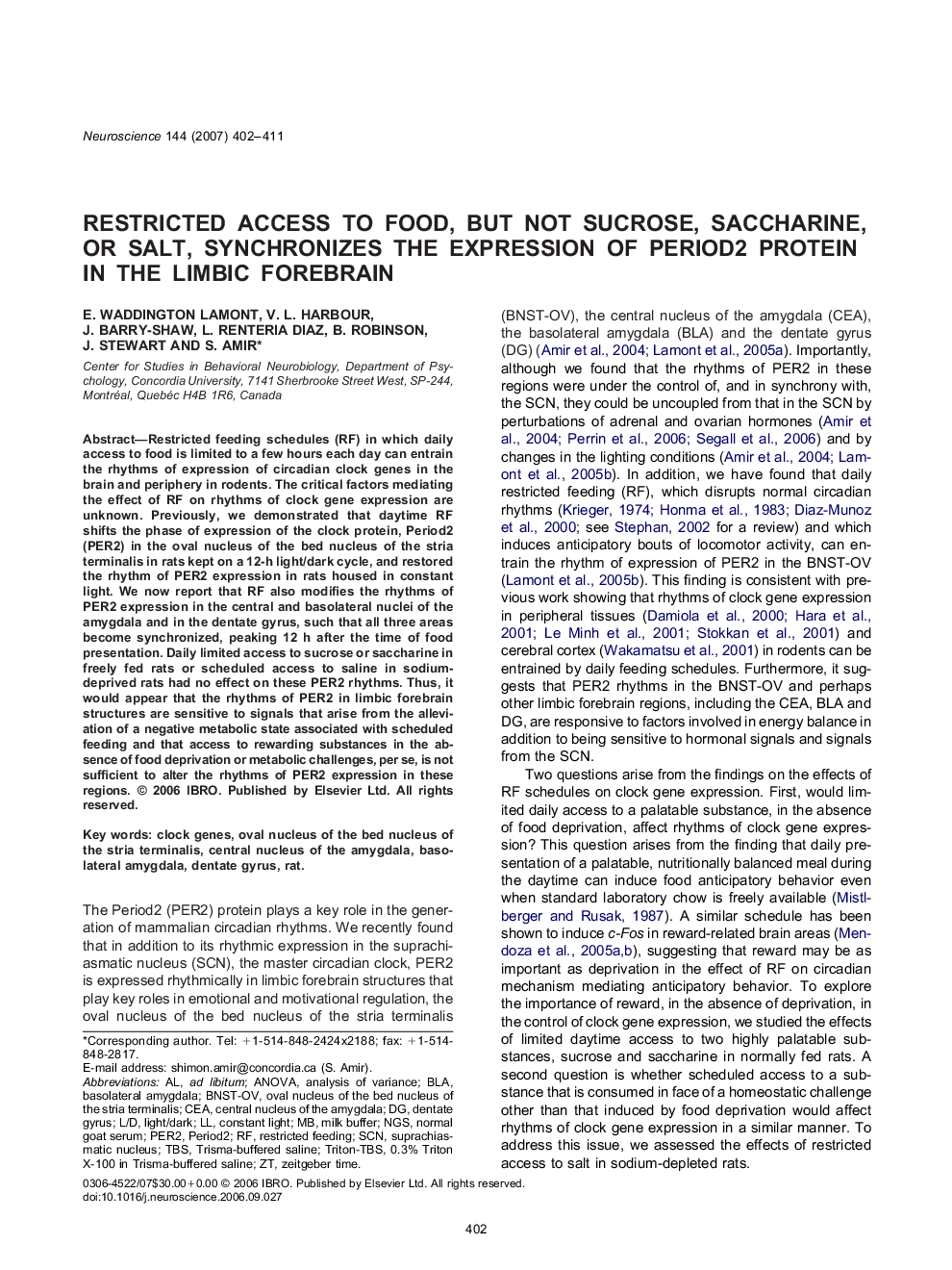| Article ID | Journal | Published Year | Pages | File Type |
|---|---|---|---|---|
| 4341104 | Neuroscience | 2007 | 10 Pages |
Restricted feeding schedules (RF) in which daily access to food is limited to a few hours each day can entrain the rhythms of expression of circadian clock genes in the brain and periphery in rodents. The critical factors mediating the effect of RF on rhythms of clock gene expression are unknown. Previously, we demonstrated that daytime RF shifts the phase of expression of the clock protein, Period2 (PER2) in the oval nucleus of the bed nucleus of the stria terminalis in rats kept on a 12-h light/dark cycle, and restored the rhythm of PER2 expression in rats housed in constant light. We now report that RF also modifies the rhythms of PER2 expression in the central and basolateral nuclei of the amygdala and in the dentate gyrus, such that all three areas become synchronized, peaking 12 h after the time of food presentation. Daily limited access to sucrose or saccharine in freely fed rats or scheduled access to saline in sodium-deprived rats had no effect on these PER2 rhythms. Thus, it would appear that the rhythms of PER2 in limbic forebrain structures are sensitive to signals that arise from the alleviation of a negative metabolic state associated with scheduled feeding and that access to rewarding substances in the absence of food deprivation or metabolic challenges, per se, is not sufficient to alter the rhythms of PER2 expression in these regions.
